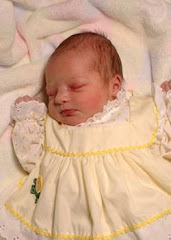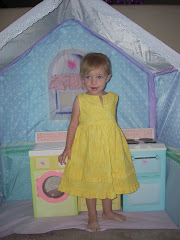Hearing
Emily had her hearing tested again yesterday with our AzIEP Coordinator. Its been about 9 months & on her first test with them she passed one ear & we couldn't get a reading on the other ear. This time she got referrals on both ears. Which essentially means she failed the pre-screening test. There are many reasons why she failed them. Either she is about to get or recently had a ear infection (that would be the easiest & least life altering). My guess is due to the amount of ear infections she has had & her speech issues she probably has fluid in her ears. That would more then likely mean she would need tubes put in. The other reason could be some level of hearing loss in one or both ears. This wouldn't completely shock me (I have a immediate family member who is sever-profoundly deaf). We will be taking Emily to a ENT (ears, nose & throat) doctor as soon as Matt's insurance kicks in (so the end of April). We are going to request that they do a ABR test. This test is done while the child is asleep (or sedated for toddlers & older children). It is the best & most accurate test. Plus we do not feel that Emily will do well with the regular hearing tests due to her Apraxia.
I always knew that ears are complicated, I just never really looked at one so closely! I am amazed that there aren't more people out there that have hearing issues. I recently had a ear infection that lasted just over a month. During that infection I lost partial hearing in my left ear. Boy was it horrible. Going from being able to hear to asking for everyone to repeat themselves over & over again. It is amazing how one little thing works. Wow, are ears amazing.
Auditory brainstem response (ABR) test
An infant is sleeping or sedated for the ABR. An infant may be sleeping naturally or may have to be sedated for this test. Additionally, older, cooperative kids may be tested in a silent environment while they're visually occupied. Tiny earphones are placed in the ear canals. Usually, click-type sounds are introduced through the earphones, and electrodes measure the hearing nerve's response to the sounds. A computer averages these responses and displays waveforms. Because there are characteristic waveforms for normal hearing in portions of the speech range, a normal ABR can predict fairly well that a baby's hearing is normal in that part of the range. An abnormal ABR may be due to hearing loss, but it may also be due to some medical problems or measurement difficulties.
-http://kidshealth.org











No comments:
Post a Comment